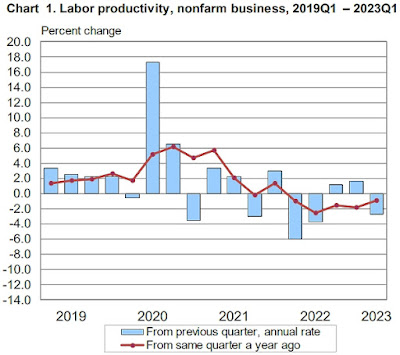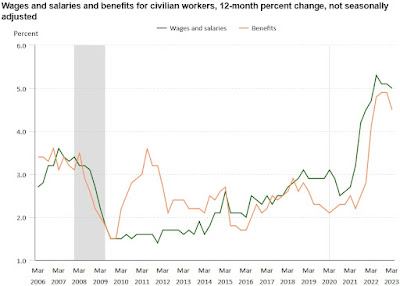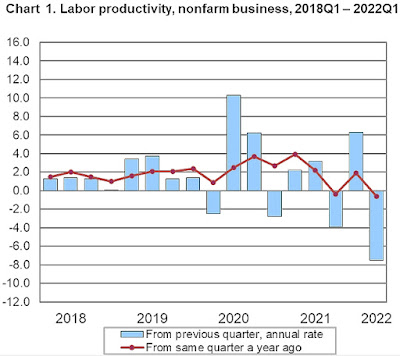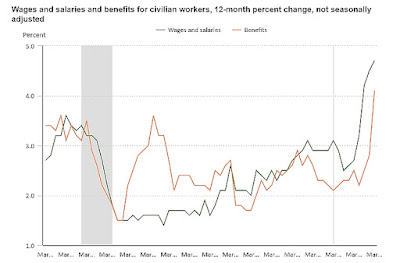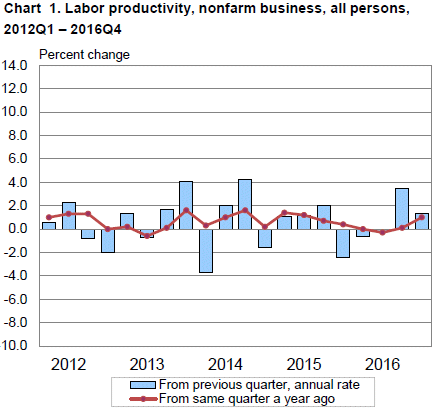Productivity and Labor Costs Report for Q1, 2025 (Revised)
The Labor Department's Bureau of Labor Statistics (BLS) this morning released its quarterly report on Productivity and Unit Labor Costs for the first quarter of 2025 (revised):
Nonfarm Productivity
Previous: -0.8%
Actual: -1.5%
- Change from A Year Ago: +1.3%
=============
Unit Labor Costs
Previous: +5.7%
Actual: +6.6%
- Change from A Year Ago: +1.9%
=============
The yellow-highlighted percentages represent the quarter-to-quarter change in non-farm productivity and unit labor costs for the United States.
For non-farm productivity, a positive number represents an improvement in the efficiency of producing domestic goods and services in the U.S., and therefore can signify a favorable inflationary outlook, and vice versa.
The Unit Labor Costs report measures the costs related to producing each unit of output. A positive number can be a harbinger of rising inflation, and vice versa.
The "predicted" figure is what economists were expecting, while the "actual" is the true or real figure.
===================
"...This is the first decline in nonfarm business sector labor productivity since the second quarter of 2022..."
Labels: Careers, efficiency, FedPrimeRate, FedPrimeRate.com, hard_data, inflation, jobs, labor, labor_cost, labor_costs, productivity, Work
|
--> www.FedPrimeRate.com Privacy Policy <--
CLICK HERE to JUMP to the TOP of THIS PAGE > SITEMAP < |



